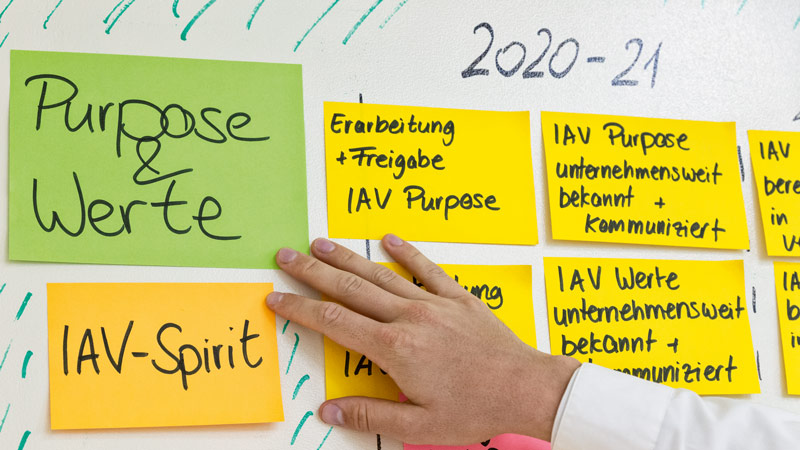Mastering Complexity with Machine Learning
As one of the first industrial corporations to do so, IAV has joined the “Cyber Valley” research partnership to collaborate with science and industry in the field of artificial intelligence. In a research project, IAV and the Max Planck Institute for Intelligent Systems (MPI-IS) in Stuttgart have teamed up to explore self-learning processes for automotive engineering. The subject matter is at the intersection of machine learning and control engineering.
The challenges in engineering are increasing all the time because the systems under review are growing in complexity. “So far, the typical approach has been to model them first and then optimize them mathematically,” explains Alexander von Rohr, who has been working on his doctoral thesis at MPIIS since September 2018 as part of the research partnership with IAV. “But the more complex the systems get, the more involved this approach is and the less accurate the results it delivers. This is why it makes sense to use machine learning to learn the target behavior automatically.”

The Cyber Valley Initiative is one of Europe’s largest research partnerships between science and industry in the field of artificial intelligence. The aim is to foster dialog between application-oriented industrial research and primary research. As one of the first of currently seven groups, IAV has been part of the research network since early 2017.
Von Rohr is looking for ways of using artificial intelligence for automatically enhancing controllers in engines. His goal is to adjust engine control in such a way that the engine uses as little energy as possible while still remaining powerful. At the same time, the controller must allow for physical limitations to avoid damage. “On the test bench I need to make sure that the controller doesn’t make the system unstable and damage it,” says von Rohr, who studied computer science at the University of Lübeck, majoring in robotics and automation engineering. “This could happen, for example, if the controller responds too strongly, making the engine run faster than it is allowed to.”
With a focus on these limitations, von Rohr explores algorithms that learn engine behavior from data. At the moment, he is not using neural networks but Gaussian processes that can take into account prior knowledge, such as laws of physics or expert knowledge. “Gaussian processes are not black boxes as neural networks are because it is easier for them to verify useful characteristics mathematically,” von Rohr says. “You can, for example, obtain information on system stability and quantify the uncertainty at specific operating points.”
Less effort involved in adjusting controllers
Based on the models learned, he wants to design controllers that actuate the engine so that all of the set goals are met. “I want to show how to enhance controllers from data generated by the engine itself and, hence, reduce the level of manual input that is involved in adjusting controllers,” von Rohr explains. “A key part of my doctoral thesis focuses on mathematically defining and then verifying the exact characteristics of the controller the engine learns.”
Cooperation with IAV makes it possible to test his result under practical conditions because the newly developed algorithms can be tried out straight away on real-world engines. “Combining primary and applied research is a huge bonus for me. With its engine test benches, IAV gives me a fantastic platform to try out my mathematical models,” von Rohr says. “Being able to test my algorithms on systems as complex as an engine, and then making them work, adds immense weight to my research work.”
Bridge between science and application
Von Rohr’s PhD supervisor also emphasizes the benefits of this cooperation arrangement: “In our projects with IAV, we can build a bridge between science and application,” says Dr. Sebastian Trimpe, head of the Cyber Valley “Intelligent Control Systems” research group at the Max Planck Institute for Intelligent Systems. “Cooperation works extremely well because both sides want to address fundamental research aspects of learning systems and also implement their findings on real-world engines.” Trimpe had worked with IAV before the research project started.
Although von Rohr mainly works at MPI-IS in Stuttgart at present, he regularly visits his IAV colleagues at the Gifhorn Development Center where he works closely with IAV developer Dr Matthias Neumann-Brosig and the Control Engineering Center of Excellence. “This cooperation will intensify as soon as the AI methods are available and can be investigated on the test bench,” says von Rohr, whose PhD thesis is due for completion in 2022.
The article was published in automotion 02/2019, the automotive engineering magazine of IAV. Here you can order the autmotion free of charge.
